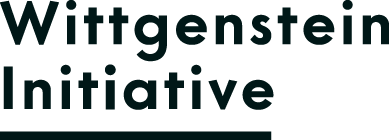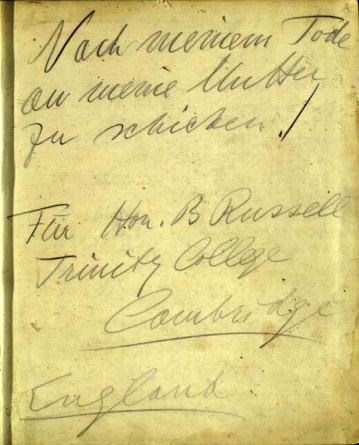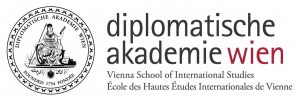THE WITTGENSTEIN CORPUS
Panel discussion and Workshop in English
10 December 2019, 14:00 – 17:00
Diplomatic Academy Vienna, Kreisky Saal
Favoritenstraße 15a, 1040 Wien / www.da-vienna.ac.at
Please register below. Admission: voluntary contributions
New ways to an adequate contemporary understanding, presentation and dissemination of Wittgenstein’s philosophy, thinking and personality. Based on new digitalization and structuring of Ludwig Wittgenstein’s Nachlass and related sources
“The Wittgenstein Corpus – the overall significance”
Prof. Arthur Gibson (University of Cambridge, Department of Pure Mathematics and Mathematical Statistics)
Prof. Alois Pichler (Wittgenstein Archives, University of Bergen)
Dr. Jonathan Smith (Trinity College, Wren Library, University of Cambridge)
Prof. Nuno Venturinha (Department of Philosophy, IFILNOVA Lisbon)
Chair: Dr. Alfred Schmidt (Austrian National Library)
The Wittgenstein Nachlass, as it is commonly conceived, is a group of items put together and numbered in the 1960s by Georg Henrik von Wright, one of Wittgenstein’s literary heirs. Von Wright’s catalogue The Wittgenstein Papers bears the mark of certain historical and geographical limitations. Since von Wright’s death in 2003 a lot of highly important and relevant new material has come to light which is not included among the Wittgenstein Papers as catalogued by von Wright (e.g. the Francis Skinner and the Yorrick Smythies papers). A new perspective has developed, about how we can truly understand Wittgenstein and his thinking process through simultaneous analysis of his various activities.
Today we know that an adequate understanding of Wittgenstein’s philosophy, mental process and personality can only be achieved when studying the Nachlass both from its philosophical and its biographical side. This is done in combination with the lectures’ notes taken by his students (Wittgenstein considered his lectures equal to his philosophical publications), with his correspondence, his Cambridge pocket diaries (currently in possession of Michael Nedo), marginalia in books read, as well as with the “Nonsense Collection”.
Thus, we indeed need what Wittgenstein himself claimed for his Philosophical Investigations (1953): “A criss-cross approach”. As a consequence, a truly modern approach to Wittgenstein will permit us to break up the historical and geographical limitations which even currently ongoing Nachlass research still seems to be confined by. We will be able to see his life and work synoptically: all the records which we have for a year / a month / a week / a day in Wittgenstein’s life. So we can achieve what Wittgenstein himself would have called Übersicht: Which book was he reading today? What newspaper fragment did he read or reflect upon? Who was he meeting? Whom did he write to? From whom did he get a letter? What was he writing? What was he lecturing? Where was he on this specific day? etc.
Error: Contact form not found.




